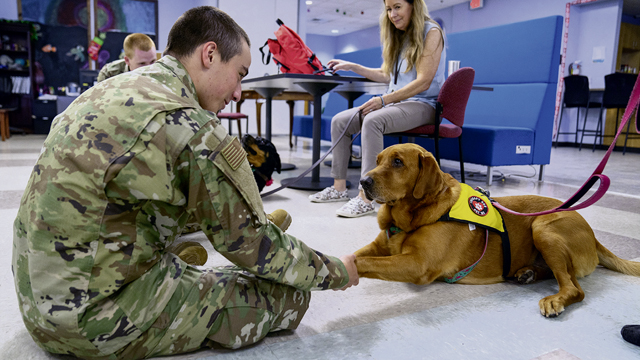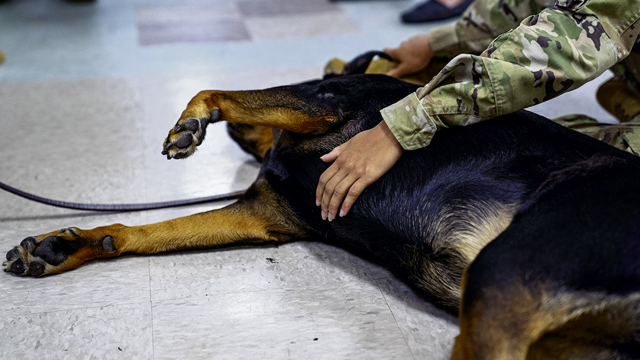
Overall, both military men and women were nearly twice as likely to report feeling high levels of stress in their military work (39 percent) than in their family life (22 percent), according to the National Library of Medicine.
Having networks and relationships that can offer physical and psychological support can help military members and their families feel a sense of belonging and community.
Keesler provides multiple resources for Airmen and their families who may need the support, including four-legged friends.
“Having a therapy animal creates connections between people where sometimes they may be hesitant to start a conversation,” said LisaMarie Mariglia, 81st Training Wing violence prevention integrator. “You can talk to your resiliency trainers and violence prevention facilitators, but some people feel a burden when they ask. Part of my job is bringing people together to be healthy, and people naturally gravitate towards other living things.”

Mariglia worked with 81st Training Wing leadership to implement a pet therapy team at the wing level. She and her bernedoodle, Charlotte, conduct morale visits around base.
In addition to the wing pet therapy team, volunteers with Visiting Pet Teams of South Mississippi visit patients and staff at the Keesler Medical Center and technical training students at the Levitow Training Support Facility.
“On Thursdays, we have in-processing Airmen come to the Levitow for Right Start, where different base organizations set up for the Airmen and then we have the dogs here,” said Tech. Sgt. Kristen Doyle, 335th Training Squadron military training leader.
The therapy dogs are trained to interact with and provide comfort to people and help provide a sense of home to new technical training Airmen who are adjusting to Air Force life. The VPTSM Keesler pet therapy coordinator, Sandie Schlett, explained she often hears about Airmen’s pets when she and her therapy dog, Xena, are at Keesler.
“You just see people’s faces light up and it takes their mind off what’s going on for a minute, gives them a little mental break,” said Schlett.


